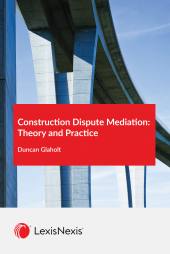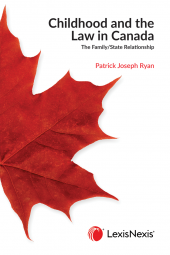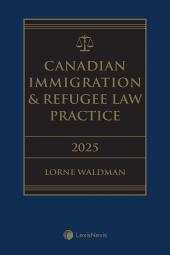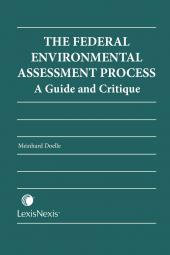The Federal Environmental Assessment Process - A Guide and Critique
One Year Subscription Only Terms
Subscribers receive the product(s) listed on the Order Form and any Updates made available during the annual subscription period. Shipping and handling fees are not included in the annual price.
Subscribers are advised of the number of Updates that were made to the particular publication the prior year. The number of Updates may vary due to developments in the law and other publishing issues, but subscribers may use this as a rough estimate of future shipments. Subscribers may call Customer Support at 800-833-9844 for additional information.
Subscribers may cancel this subscription by: calling Customer Support at 800-833-9844; emailing customer.support@lexisnexis.com; or returning the invoice marked 'CANCEL'.
If subscribers cancel within 30 days after the product is ordered or received and return the product at their expense, then they will receive a full credit of the price for the annual subscription.
If subscribers cancel between 31 and 60 days after the invoice date and return the product at their expense, then they will receive a 5/6th credit of the price for the annual subscription. No credit will be given for cancellations more than 60 days after the invoice date. To receive any credit, subscriber must return all product(s) shipped during the year at their expense within the applicable cancellation period listed above.
Product description
Canadian Environmental Assessment Act (CEAA) is among the most employed pieces of legislation in this country, a statute that applies to thousands of development projects per year. When choosing to grant or deny approval for proposed developments, environmental assessments can provide an invaluable and objective platform for the decision maker. Understanding how the government wields this potentially powerful tool and how the process works is vital for all environmental and natural resource lawyers, particularly with the Act scheduled for a major parliamentary review.
Professor Meinhard Doelle, the author of this unique publication, brings a vast range of environmental law experience to the project. Considering that, as a development planning tool, an environmental assessment is a critical information-gathering and decision-making instrument, Butterworths The Federal Environmental Assessment Process - A Guide and Critique needs to be part of your arsenal.
Features and Benefits
By analyzing what has become a mandatory process in Canada for a wide range of activities federally, in provinces and territories, and under Aboriginal self-government agreements, The Federal Environmental Assessment Process - A Guide and Critique provides the reader with:
- Expert commentary - comprehensive coverage of all relevant issues relating to the federal environmental assessment process under the CEAA
- Practical advice - a complete review of all the environmental assessment processes available under the Act
- Case law - detailed analysis of the extensive body of CEAA-related case law
- Research tools - an in-depth review of literature relating to the theory and practice of environmental assessments
Tackling the Key Issues
This book brings context to the evolving environmental assessment process in Canada by helping you understand:
- How international law has helped shape the federal environmental assessment process in Canada
- The dynamics of federal and provincial government powers and how they affect the federal environmental assessment process
- The options available for law reform with the CEAA scheduled for a major review in 2010
- How the focus and purpose of the environmental assessment process within Canada has morphed over time by providing the historical evolution of the procedure
An Indispensable Guide For
- Environmental lawyers who require a comprehensive analysis of environmental assessment legislation and case law
- Natural resource lawyers who need to understand the various environmental assessment processes available under the CEAA
- Large business corporations and in-house counsel who need to factor in the environmental assessment in development projects
- Academics, students and government officials who are grappling with how the environmental assessment process will be reformed when the CEAA undergoes parliamentary review
- Non-governmental organizations and community groups who are preparing to participate in a federal environmental assessment process
Click here to read a review of this title
Table of contents
Introduction: A Brief History of Environmental Assessment
Theory and Practice of Environmental Assessment: Mind the Gap!
International Law and Environmental Assessment: From Promise to Performance?
The Constitutional Context: From Finger Pointing to Cooperation?
The Application of CEAA: Bending Broken Rules?
Process Options for Federal Assessments: A Square Peg in a Round Hole?
Law Reform Options: Mending Broken Rules
Related products
-
New!Preorder
 Construction Dispute Mediation: Theory and PracticeNew!Release date: December 31, 2024$155.00
Construction Dispute Mediation: Theory and PracticeNew!Release date: December 31, 2024$155.00 -
New!Preorder
 Childhood and the Law in Canada – The Family/State RelationshipNew!Release date: December 31, 2024$110.00
Childhood and the Law in Canada – The Family/State RelationshipNew!Release date: December 31, 2024$110.00 -
New!
 Canadian Immigration & Refugee Law Practice, 2025 Edition (Volume 1) + Related Materials (Volume 2) + E-BookNew!Release date: November 14, 2024$205.00
Canadian Immigration & Refugee Law Practice, 2025 Edition (Volume 1) + Related Materials (Volume 2) + E-BookNew!Release date: November 14, 2024$205.00
 Lexis Nexis
Lexis Nexis 